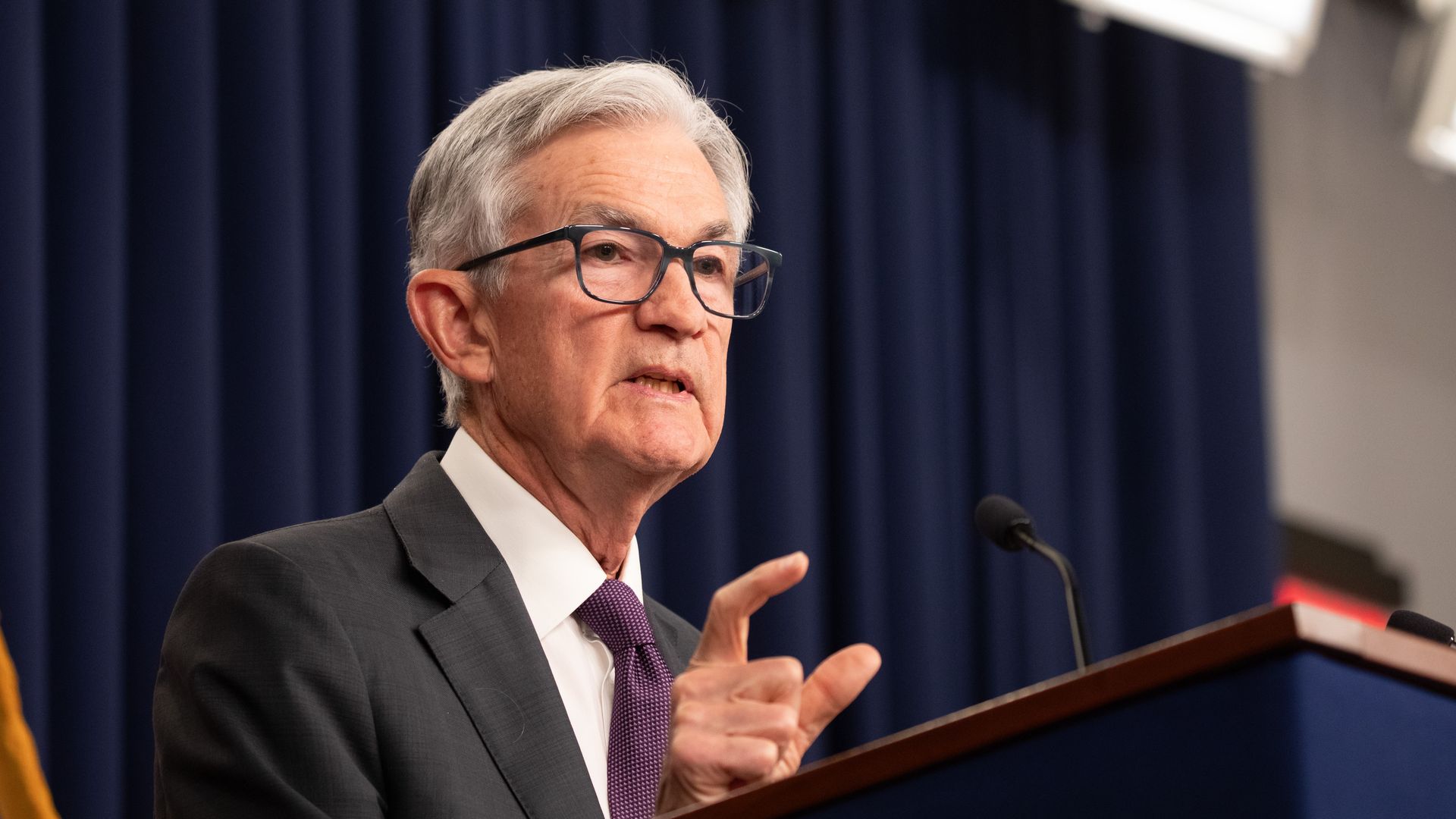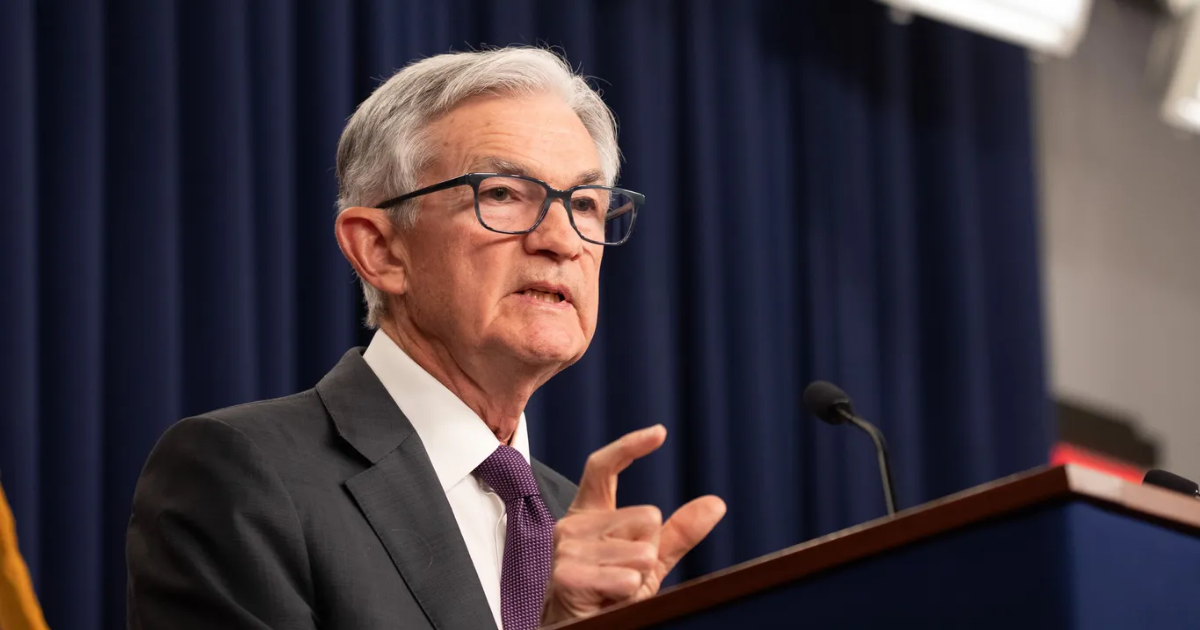 Fed chair Jerome Powell. Photo: Yasin Ozturk/Anadolu via Getty Images
Fed chair Jerome Powell. Photo: Yasin Ozturk/Anadolu via Getty Images
Federal Reserve chair Jerome Powell said Friday that bigger-than-expected tariffs will translate into higher inflation and slower economic growth — and that the higher inflation could be persistent, not temporary.
Why it matters: Powell’s remarks suggest that the Fed will offer no imminent relief from plunging markets and scrambled supply chains.
- The fear of lasting inflation will make the Fed will wary of cutting rates even if the economy falters.
- Just moments before Powell’s speech, President Trump said on Truth Social that “This would be a PERFECT time” for Powell to cut rates.
What they’re saying: “While uncertainty remains elevated, it is now becoming clear that the tariff increases will be significantly larger than expected,” Powell said at a conference of business journalists, according to a prepared text.
- “The same is likely to be true of the economic effects, which will include higher inflation and slower growth,” Powell said.
- “While tariffs are highly likely to generate at least a temporary rise in inflation, it is also possible that the effects could be more persistent.”
State of play: That mix of slower growth, inflation, and high uncertainty has put the Fed’s interest rate policy on indefinite hold, as Powell affirmed.
- “We are well positioned to wait for greater clarity before considering any adjustments to our policy stance,” he said. “It is too soon to say what will be the appropriate path for monetary policy.”
Between the lines: Financial markets are pricing in significant rate cuts over the course of the year, as the Fed reacts to a trade-induced economic slump. But Powell’s comments throw some cold water on that possibility.
- If tariffs cause a one-off rise in prices, the Fed could be inclined to look through the adjustment and be more attentive to what is happening to the labor market.
- But with inflation already elevated and new tariffs an order of magnitude higher than those seen in decades, Fed officials’ fear is that Americans’ will lose confidence in longer-term inflation remaining low, which could unleash a cycle of rising prices.
- The Fed’s obligation, Powell said, is “to make certain that a one-time increase in the price level does not become an ongoing inflation problem.”
Of note: Trump combined the demand for lower rates with attacks on Powell reminiscent of his previous term. Powell “is always ‘late,’ but he could now change his image, and quickly.”
- “CUT INTEREST RATES, JEROME, AND STOP PLAYING POLITICS!,” Trump wrote.
The bottom line: Amid falling stock prices and an uncertain economic future, don’t expect the Fed to come to the rescue anytime soon. That isn’t what Trump wants to hear, and sets up further tension between the president and the central bank.
